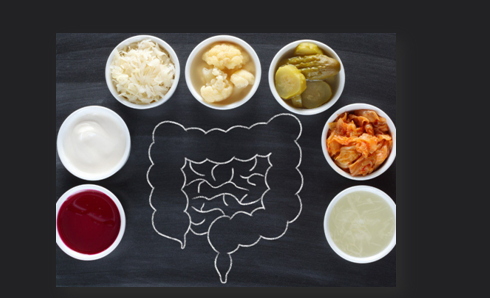For thousands of years, fermented foods have been integral to human diets—not just for their bold, distinct flavors and extended shelf life, but also for their significant health benefits. Foods like Korea’s kimchi, Germany’s sauerkraut, and globally beloved yogurt are all products of fermentation—a natural process where microorganisms such as bacteria, yeasts, and molds break down sugars and starches into acids, gases, or alcohol. While the lively, tangy taste is appealing, the true nutritional benefits arise from the transformations that occur during fermentation.
1. Probiotics: A Gut Health Booster
One of the standout advantages of fermented foods is their rich content of probiotics—beneficial microbes that flourish during fermentation. When ingested, these bacteria help maintain a balanced gut microbiome, aiding digestion, improving nutrient absorption, and strengthening immune defenses. Foods like yogurt, kefir, kombucha, and miso are packed with live cultures that play a key role in overall health.
2. Enhanced Nutrient Bioavailability
Fermentation can significantly boost the availability of essential nutrients in food. For example, fermented dairy products often contain higher levels of B vitamins and more easily absorbed forms of minerals like calcium and magnesium. Additionally, fermentation reduces anti-nutrients like phytic acid found in grains and legumes, making vital minerals more accessible to the body.
3. Natural Preservation with Added Benefits
Fermentation has traditionally been used as a method of food preservation, eliminating the need for artificial additives. The acids formed during fermentation—such as lactic acid—naturally inhibit harmful bacteria, extending shelf life while simultaneously enriching flavor and nutritional value.
4. Supporting Immune Health
Since a large portion of the immune system is based in the gut, nurturing gut health is essential for strong immunity. Fermented foods help by maintaining gut lining integrity and promoting antibody production. Some studies suggest that regular consumption of fermented foods may lower inflammation and reduce vulnerability to infections.
5. Improved Digestibility
Foods are pre-digested via the fermentation process, which facilitates the body’s processing of them. For instance, during the fermentation of dairy, lactose is broken down, allowing individuals with lactose intolerance to often tolerate products like yogurt and kefir better than milk. Soy products that have undergone fermentation, such as tempeh and miso, are easier for digestion than those that have not.
6. Potential Benefits for Mental Well-being
Emerging research points to a strong gut-brain connection, indicating that gut health may influence mood and cognitive function. Probiotics found in fermented foods could potentially help alleviate symptoms of anxiety, depression, and stress, although further studies are necessary to confirm these effects.
Popular Fermented Foods to Explore
– Yogurt – Probiotics and calcium can be found in abundance.
– Kimchi – A spicy fermented cabbage dish full of fiber and nutrients.
– Sauerkraut – Fermented cabbage high in vitamin C and beneficial for digestion.
– Kombucha – A fizzy, probiotic-rich fermented tea with antioxidant properties.
– Tempeh & Miso – Protein-dense fermented soy products loaded with enzymes.
– Kefir – A tangy dairy drink abundant in various probiotic strains.
Final Thoughts
Fermented foods offer much more than a flavorful experience—they serve as powerful nutritional allies that support health from the inside out. With benefits spanning improved digestion, enhanced nutrient absorption, stronger immune defenses, and even potential mood improvements, integrating fermented foods into your diet can have lasting positive effects. Consuming them in moderation—just a few servings per week—can contribute meaningfully to your overall well-being.

Absolutely informative! Keep it up :))))))